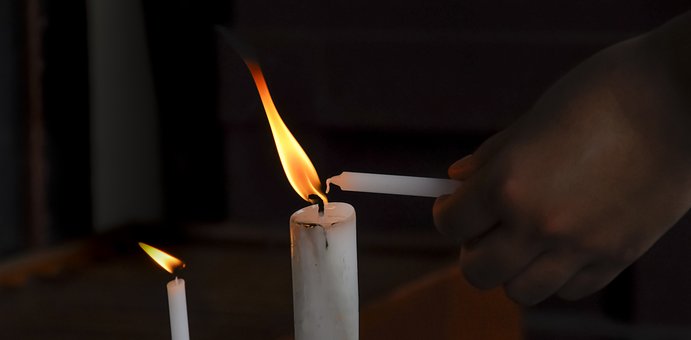Hassan II University of Casablanca
Faculty of Arts and Humanities-Mohammedia
Interdisciplinary Research Laboratory in Social and Human Sciences
International meetig : ” Thinking, writing the city”
Tuesday 23 and Wednesday 24 November 2022
Call for papers
The Interdisciplinary Human Sciences Research Laboratory (LARISH) of the Faculty of Letters and Human Sciences of Mohammedia – Hassan II University is organizing an international symposium on the theme “Thinking, writing the city” from Tuesday 23 to Wednesday 24 November 2022.
At the start of the 21st century, it has become tautological to say that the city occupies a preponderant role in our lives in all cultural, economic, political and sociological fields. Rampant urbanization profoundly affects all spheres of our existence.
The city is more than ever the place of mixing and mixing, where the city dweller is subject to the centrifugal and centripetal forces of exclusion and/or inclusion. Since Antiquity, it has constituted a privileged breeding ground for human reflection and imagination.
The presence of the city in the “Logos” and the “Mythos” goes back to a distant temporality. During Antiquity, interest in the city (polis), essentially in its ideal (utopian) or political form of city-state, never waned (Aristotle Politics, (384-322 BC). C) Plato The Republic (427 to 348 BC)). The biblical tradition has consecrated, for its part, the image of a cursed construction, object of all hatred, even of all repulsion, built by fratricidal hands, place of depravity and perversion, object of ire and divine wrath. In this theological context, the city, taxed as trivial and obscene, is diametrically opposed to the spiritual and sacrosanct model of the “city of God”, set up of course as a unique utopia endowed with virtues. In literature, since the advent of the picaresque novel, the city has turned into an essential cliché in novelistic writing. Modernity in the 19th century will see the triumphal entry of the city into the temple of poetry (Badelaire, Verhaeren, etc.), while the emergence of the human sciences has made it a crucible and a crossroads of writing in which urbanity and the urban come in symbols and representations that saturate all levels and species of saying and scientifically instituted discourses. In the 20th century, cinema and the modern novel, whose essence and development are deeply urban, drew their substance, their material and their vision of the world from the city.
It is a question, for us, of giving an account, in this international interdisciplinary colloquium, of this discursive richness whose supports and versions intersect in what we can currently name the thought and the writing of the urban.
This symposium invites researchers from various backgrounds and disciplines to contribute to a rich and multidisciplinary discussion around the subject of the city, the influence of the urban on literature, the visual arts, philosophy, to name a few. than these. We welcome papers claiming to be from the humanities, literature, architecture, history, linguistics, geography, cinema, social sciences, and computer science (connected city, smart city ).
Thematic axes:
Without limitation, proposals may relate to:
1. Fragmentation of the city: borders and limits
2. Architectural additions: construction and incompleteness
3. City and history of social relations
4. City and territorial policy
5. Urbanity in historical narratives
6. Ancient cities and the challenges of modernization
7. City, languages and languages, linguistic territories, urban territories and dialects, diversity, transmission and identity
8. The city and the visual arts (painting, cinema, installations, etc.)
9. Urban writings (posters, graffiti, tags, etc.)
10. The Romance of the City
11. The digital city, the smart city, the connected city.
—
Terms of participation
We will ask participants to please provide the following: before July 15, 2022 :
A proposal including a title and an abstract (150-300 words in French, English or Arabic)
A short presentation or biography of the participant and their current research (approx. 150 words in French, Arabic or English)
Authors of contribution proposals are requested to send them in .doc or .pdf format to the following addresses:
ouledalla_m@yahoo.fr
ahmedtouba100@gamil.com
hzrizi@gmail.com
Response from the Scientific Committee no later than July 30, 2022
Publication of the conference proceedings in 2023
Papers selected by the scientific committee after double-blind reading will be sent before December 30, 2022 deadline to:
Ouledalla_m@yahoo.fr
ahmedtouba100@gamil.com
hzrizi@gmail.com
—
Typographic standards:
o Submitted texts must contain 30,000 characters -bibliography not included- and typewritten in Cambria, 12, line spacing 1.5.
o Quotations must respect a left and right indent of 2 cm.
o Articles must also be accompanied by a title and an abstract in English as well as a list of keywords.
o Footnotes must be numbered continuously and comply with the following standards: (see example below)
– Articles: CASSIRER, Ernst 1991a “The tragedy of culture”, Logic of cultural sciences, Paris, Cerf. (Translation by J. CARRO.)
– Works: Renard J.-P., Picouet P., 2007, World borders, origins and dynamics, Nantes: Time, coll. A Geography, 159 p.
—
Scientific committee
Zrizi Hassan Professor FLSHM Mohammedia Hassan II University
Marc Gontard Professor Emeritus University of Rennes France
Mansour Mhenni Professor Emeritus Al Manar University Tunisia
Touba Ahmed Professor FLSHM Mohammedia Hassan II University
Ibn El Farouk Abdelhamid Professor FLSHM Mohammedia Hassan II University
Yahyaoui Mostapha Professor FLSHM Mohammedia Hassan II University
Kemboouche Khéira Professor FLSHM Mohammedia Hassan II University
El Asri Abderrazak Professor FLSHM Mohammedia Hassan II University
Serhani Mounir Professor FLSHM Mohammedia Hassan II University
Ouled Alla Mohamed Professor FLSHM Mohammedia Hassan II University
steering Committee
Lyazidi Souad
Ouled Alla Mohamed
Serhani Mounir
Kembouch Kheira
El Asri Abderrazak.

